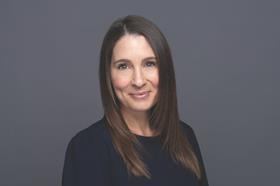More law firms than ever before are considering how they can be environmentally and socially responsible, but rarely do they take the next step into B Corp certification. Of the 3,467 companies that are certified in the UK, only 36 law firms – including SA Law – have achieved it.

Certified B Corps are companies that meet high standards of social and environmental performance, transparency and accountability. Rather than focusing solely on profit, B Corps are legally required to consider the impact of their decisions on workers, clients, suppliers, community and the environment.
Why are so few law firms certified? It is unclear why law firms are not applying to become B Corps. It is possible that restrictions around working for clients in controversial industries could be a barrier for some, but many law firms are already aligned with B Corp’s values. Becoming a B Corp could enhance their social and environmental performance.
Since SA Law started 20 years ago, we have prioritised: working for clients in industries that uphold ethical standards in their commercial operations; investing in and supporting the wellbeing of our staff, including championing flexible working; and a solid commitment to corporate social responsibility (CSR) in the communities we serve. However, we felt we could do much more.
Certification is not a tick-box exercise. It is a journey that will make you look at and reconsider every aspect of the business and how it can be improved. The investment in this process and the improvements that follow will provide huge returns in employee engagement, talent retention, impact on the environment, efficiency and sustainability.
The certification process
The certification process challenged and stimulated our thinking. To certify as a B Corp, firms undergo B Lab’s rigorous verification process. B Lab is the global non-profit organisation behind the B Corp movement, which assesses companies’ eligibility and guides organisations on how to drive more inclusive, equitable and sustainable practices.
Through their B Impact Assessment, our firm’s social and environmental performance was evaluated across five impact areas: governance, workers, community, environment and customers. To achieve certification, we had to attain an overall B Impact Assessment score of 80 or above and pass B Lab’s risk review. From April 2025, the standards changed. There are now seven impact areas which can be found on the B Corp website (tinyurl.com/yrttumwd). Organisations have to achieve a pass score per area, rather than overall.
The process took 18 months, starting with an in-depth self-assessment of our business, employment practices, our clients, and suppliers. B Lab’s digital tool assessed each impact area, and once completed, we could compare our ‘impact’ with other businesses and learn how to enhance our performance. This approach highlighted where we were performing well and where there were areas for improvement. For example, we realised we needed further tools and training to accurately measure our carbon emissions. While we had a general idea, we were not obtaining the right information and employing the most efficient solutions to reduce them.
A particularly difficult area for law firms, during the assessment process, will be to decide if they are willing to reduce or remove clients in controversial industries. Tobacco, pornography, gambling, weapons, fossil fuel production, prisons and detention centres are defined as industries that ‘act against the B Lab Theory of Change’. If a law firm generates more than 1% of revenue from clients in these industries, it cannot become a certified B Corp.
In some cases, it can be tricky to define whether revenue is coming from a controversial industry, so it is important to be transparent and seek the support of B Lab to fully understand how a specific client is viewed and what this means for your firm’s eligibility.
B Lab encourages businesses to shop locally and sustainably. This can be difficult for law firms that require large IT systems, which can only be provided by global tech companies, and are limited in choice even when it comes to professional indemnity insurance providers. It is important to be transparent with B Lab, and where you can, reconsider your purchasing policies.
B Corp certification is not the end of the journey. B Lab requires firms to show continuous improvement year on year. Firms will need to publish an annual impact report on their website, demonstrating where advances have been made, and recertify every three years.
SA Law has already seen the positive effects that becoming a B Corp can have on staff morale and client engagement across the firm. Knowing that the firm cares about them as people, the community it serves and the global fight against climate change makes a difference. Staff have also enjoyed more opportunities to take part in CSR opportunities and contribute to this journey.
Once certified, we joined the B-Hive platform, where we are able to connect with other B-Corps, locally, nationally and around the world. This is not just helpful from a networking and community relations perspective, but allows us to collaborate on how to further improve practices – a key part of being a B-Corp.
The B Corp certification pushed us to take a good, hard look at our firm and ask what else we could be doing to create a more equitable and environmentally conscious business. It has, without a doubt, improved our business for the better. We would encourage other law firms to consider B Corp certification.
Tracy Lacey-Smith is joint managing partner and joint head of commercial litigation and dispute resolution at SA Law, St Alban































1 Reader's comment